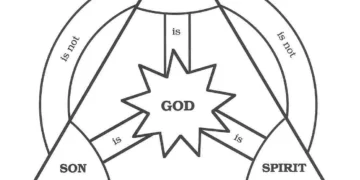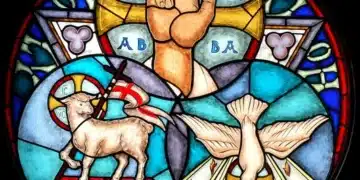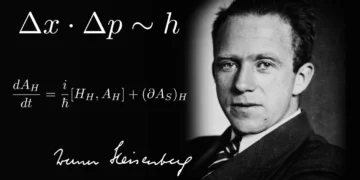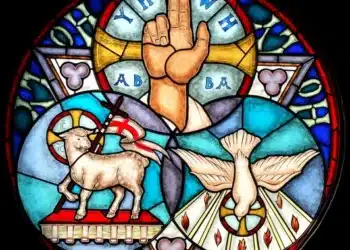In the realm of religion, there are countless paths to find spiritual fulfillment. However, one intriguing concept that often surfaces is dualism—a belief that embraces the coexistence of seemingly opposing forces. While some view dualism as a contradiction or a source of conflict, we have an opportunity to explore the inspiring harmony that can emerge from the interplay of these diverse perspectives. In this article, we shall embark on a journey of understanding and celebration of dualism in religion.
Embracing Diversity
Religion is a profoundly personal and cultural affair, with countless denominations, sects, and spiritual practices worldwide. Dualism acknowledges this diversity by recognizing the coexistence of contrasting beliefs, ideas, and philosophies. Rather than perceiving these differences as stumbling blocks, we should see them as an opportunity for personal growth and intellectual exploration.
Unity in Duality
In the face of dualism, we often witness beautifully intertwined dualistic concepts. Day and night, sun and moon, light and darkness—all harmoniously interwoven to create a balanced existence. Similarly, in religion, dualistic beliefs often provide the necessary contrast that brings depth to our spiritual journey.
For instance, the concept of good and evil in Christianity presents a dualistic understanding of the world. It invites us to observe the harmony that emerges when these opposing forces interact. Without experiencing darkness, we cannot fully appreciate the light. It is in the face of adversity that we recognize and embrace the power of love and kindness.
Learning from Dualism
Dualism offers us valuable life lessons and spiritual insights. The contrasting aspects of our beliefs challenge us to question, learn, and grow. Engaging in dialogue with individuals who hold different viewpoints can expand our understanding and deepen our faith.
Rather than fearing dualism, we should welcome it as an opportunity to strengthen our relationship with God and humanity. By respectfully engaging with diverse perspectives, we can broaden our spiritual horizons and foster a more inclusive and empathetic worldview.
Finding Common Ground
While dualism acknowledges the existence of contrasting forces, it also reveals the potential for commonality. Despite our differences, there are often shared values and principles that unite us as human beings. We can find common ground in our desire for love, compassion, justice, and a deep longing for a connection with the divine.
When we embrace dualism in religion, we acknowledge that multiple paths may lead to the same spiritual destination. By respecting and celebrating these diverse paths, we enable ourselves to build bridges of understanding and foster a sense of unity amidst the rich tapestry of human beliefs.
Celebrate Coexistence
Dualism in religion encourages us to embrace diversity, explore contrasting viewpoints, and seek unity amidst the apparent contradictions. By approaching dualism with an open heart and mind, we can learn valuable lessons, strengthen our faith, and foster harmony in a world characterized by religious multiplicity.
Let us celebrate the coexistence of opposing forces, recognizing that it is in this very duality that the beauty of religious exploration and spiritual growth thrives. In doing so, we honor the richness of human experiences and deepen our connection with God and one another.
















































































